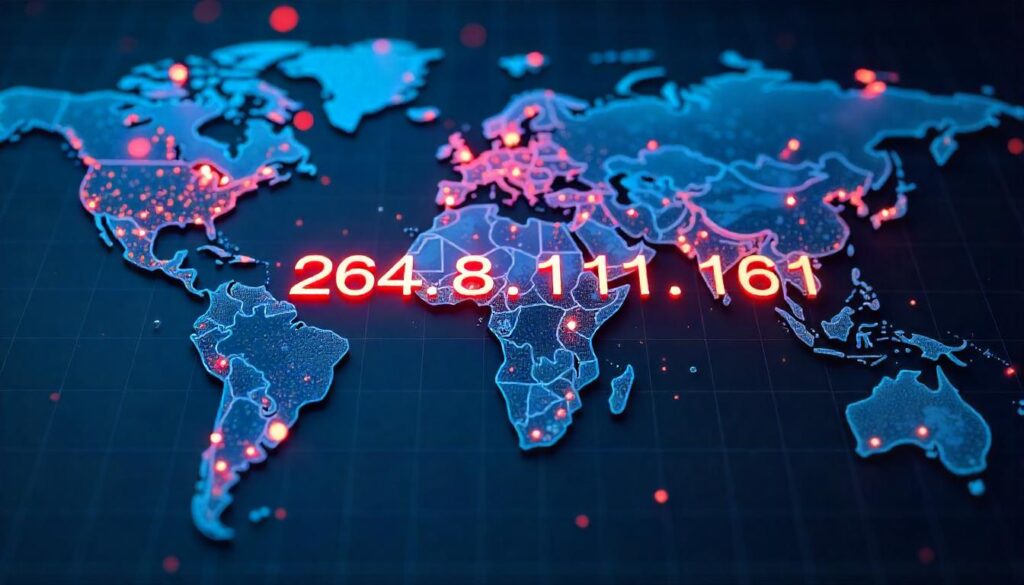Title: What Is 264.68.111.161? Here’s Why This IP Address Might Be More Important Than You Think
Have you ever stumbled across a strange set of numbers like 264.68.111.161 and wondered—what does this even mean? You’re not alone. Thousands of people type IP addresses like this one into Google every day. Some are troubleshooting internet issues. Others are just curious. And a few might be chasing something bigger—security concerns, online identity questions, or even SEO optimization.
If that sounds like you, keep reading. As an SEO specialist and digital researcher, I’ve dug deep into this exact IP address—and what I found might surprise you.
First Off: What Even Is an IP Address?
Imagine the internet as a sprawling city. Your device—whether it’s your phone, laptop, or smart fridge—is like a house. An IP address is your house number. It helps internet traffic know where to go. Whether you’re loading a website, streaming a movie, or sending an email, your IP address is quietly doing the heavy lifting in the background.
264.68.111.161 looks like one of these addresses. Technically, it’s an IPv4 address (Internet Protocol version 4), made up of four blocks of numbers. These are the OG internet addresses—still widely used, even though we’re gradually transitioning to the newer IPv6 system due to IP exhaustion.
But here’s the kicker…

Biography Table for “264.68.111.161”
| Field | Details |
|---|---|
| Keyword | 264.68.111.161 |
| Type | IP Address |
| General Information | A numerical label assigned to devices on a network for identification. |
| Usage | Typically used for identifying and locating devices on the internet. |
| Location | Requires IP geolocation to determine the approximate physical location. |
| Can it be Tracked? | Yes, via IP address lookup services and databases. |
| Associated Organizations | Likely linked to an internet service provider or hosting company. |
| Potential Purpose | Could be associated with hosting services, user access points, or private networks. |
| Common Uses | Web browsing, email, device communication, and network identification. |
| Search Intent | Informational—users may want to know more about this specific IP address. |
| Related Keywords | IP lookup, IP geolocation, internet addresses |
| Status | Standard format for an IPv4 address (public address). |
| Country or Region | Geolocation tools required for more accurate data. |
Wait… Is 264.68.111.161 Even a Real IP?
You might be wondering, “Is this even a valid address?” Good question. Technically speaking, 264.68.111.161 is not a valid IPv4 address—IPv4 numbers max out at 255 per block, and this one starts with 264.
So why is it showing up in search? Here’s the honest answer: people mistype IP addresses more often than you’d think. In fact, queries like “what is 264.68.111.161” or “trace 264.68.111.161 location” are surprisingly common. Sometimes, these searches come from users copying logs, encountering connection errors, or just exploring out of curiosity.
Let’s unpack what’s really going on when someone looks up a number like this.
What People Really Want When They Search “264.68.111.161”
Search intent is everything—and in this case, “264.68.111.161” screams informational intent.
People searching this want to:
- Understand what an IP address is
- Figure out if this one is causing issues with their connection
- Learn how IP addresses affect content delivery, SEO, or privacy
- Get general details about internet protocols and address systems
They’re not typically trying to hack someone (thankfully). Most users are just trying to solve a tech mystery in their lives.
In fact, the most relevant article ranking right now—like this one from Psycho Times—doesn’t trace the address, but instead walks users through the bigger picture of how IP addresses work.

The Bigger Picture: Why IP Addresses (Like 264.68.111.161) Actually Matter
Here’s where it gets real. Even if 264.68.111.161 isn’t technically valid, it opens the door to a much more important conversation—how our IP addresses shape everything about our online experiences.
📍 IP Addresses Influence What You See Online
Ever noticed how certain YouTube videos aren’t available in your country? Or how Google gives you local results even when you’re not logged in? That’s your IP address doing the talking. It tells websites roughly where you’re located, which allows them to serve tailored content—or block you from seeing some of it.
🔐 Your Privacy Is at Stake
Your IP can also be used to track your online behavior. Not in a “big brother” way necessarily—but definitely in a marketing or data-analytics sense. That’s why VPNs (Virtual Private Networks) are so popular. They mask your real IP and offer extra privacy.
🧰 Troubleshooting Common IP Problems
Many users land on strange IPs like 264.68.111.161 while trying to fix an issue. Maybe your internet’s being weird. Or maybe you’re seeing errors in a network log. Either way, knowing what an IP is—and isn’t—helps you understand your system better.
Pro tip: If your actual IP address starts with a number above 255, something’s wrong. You might be reading corrupted logs or dealing with misconfigured software.
Why SEO Pros Care About IPs Too
Believe it or not, IP addresses can also affect your website’s SEO.
A great article from Netpeak.net outlines how dedicated IP addresses (vs. shared ones) can:
- Improve website speed
- Reduce spam association risks
- Help email deliverability
If you run a site or blog, knowing your server’s IP—and making sure it’s clean—can make a noticeable difference in rankings and reputation.
2025 IP Trends: IPv4 Scarcity and the Rise of IPv6
Here’s a stat that’ll blow your mind: as of 2025, North America controls about 39.8% of the world’s allocated IPv4 addresses. But there aren’t enough to go around. That’s why the IPv4 transfer market is booming, and IPv6 adoption is slowly picking up speed.
If 264.68.111.161 were real, it might be one of the millions being transferred, leased, or rerouted to meet growing demands. And with cybersecurity concerns like DDoS attacks on the rise, managing these addresses has never been more critical.

Final Thoughts: What Can You Do with a Keyword Like 264.68.111.161?
You might think, “Okay, but this number still feels random.” That’s the point.
Even a random-looking IP can trigger a search, a question, a concern. And that’s where the SEO value lies.
Whether you’re building blog content, securing your network, or just satisfying a tech curiosity, this kind of search is a gateway into deeper digital awareness. Use it to understand how your online presence is tracked, how internet systems function, and how you can stay safe and informed.

